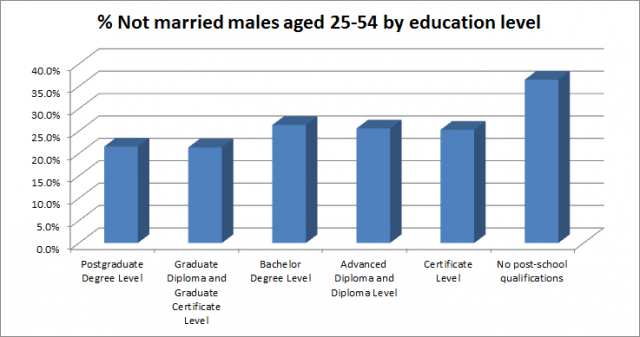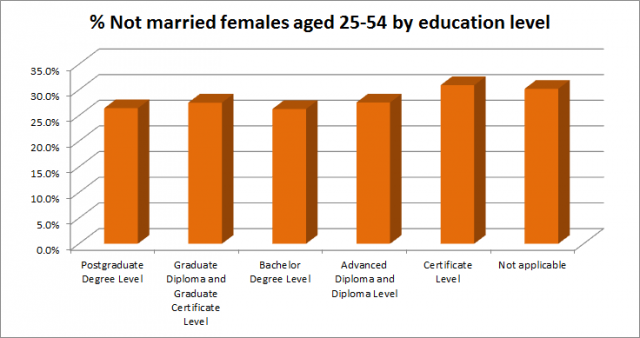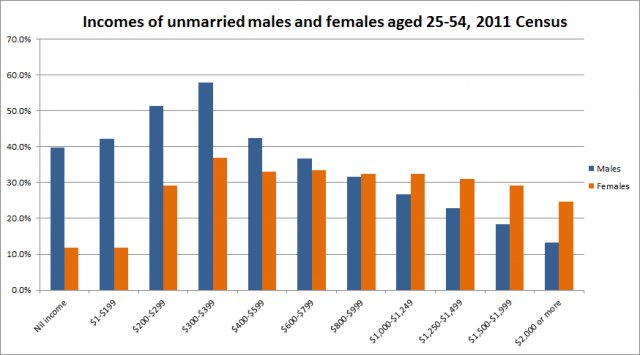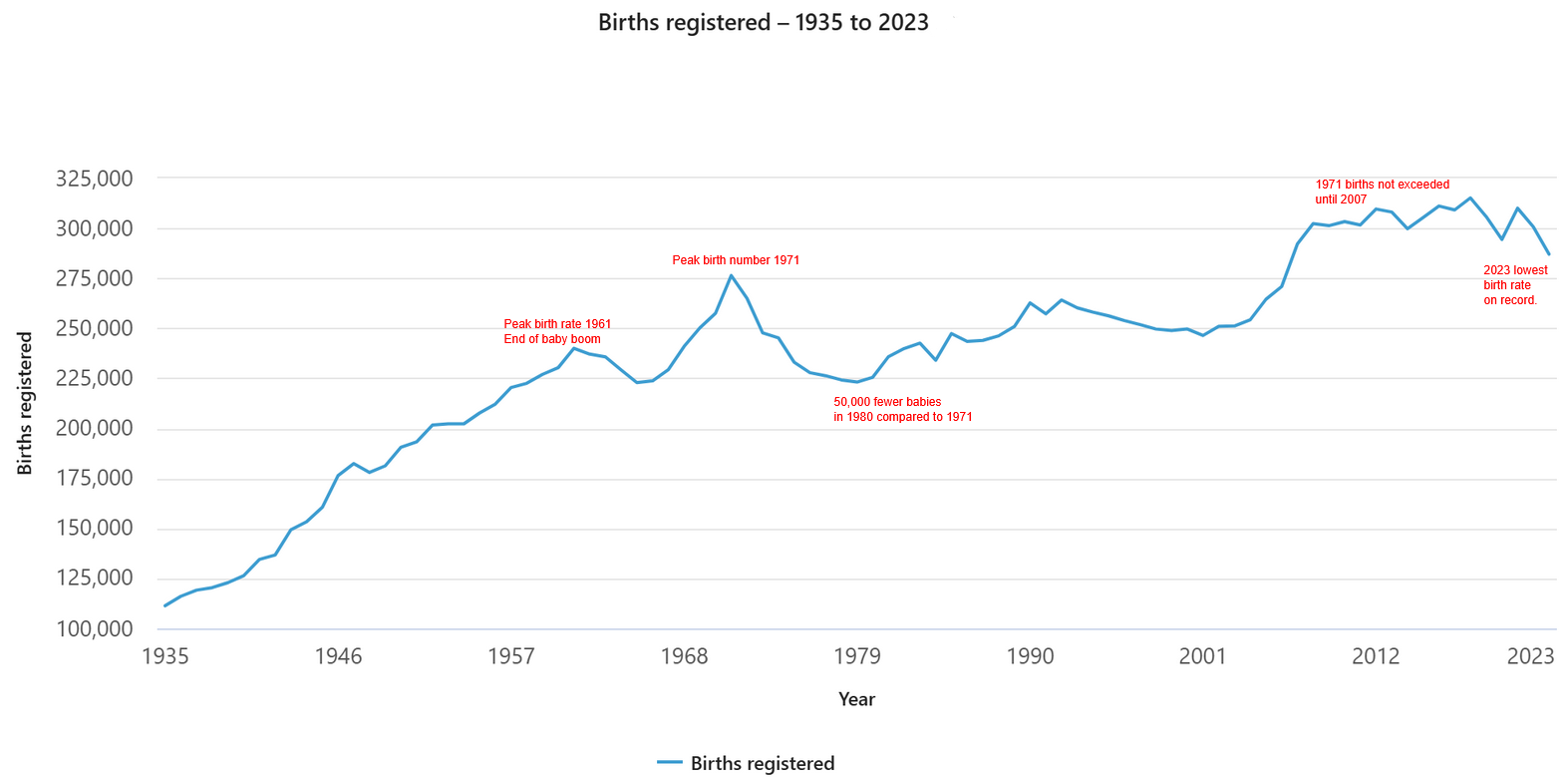There is a theory that, when selecting a man as a long term relationship proposition, women are more likely to look for status and income, and men are more likely to go for looks and youth. While certainly controversial, this theory is based on sound evolutionary principles, and its proponents will often point to 25 year old models marrying geriatric millionaires as proof in the extreme cases. But the plural of anecdote is not evidence, and in the age of gender equality, women in the workforce being the norm, and in many cases earning more than their partners, is there still any truth to it? What does the Census data say?

A little bit of Census analysis can give us some clues. This is not an exhausting study by any means, and I’ve made no attempt to weed out confounding variables, but it does give an interesting insight.
The Census has a variable called Social Marital Status – this looks at whether a person is partnered in a registered marriage, de-facto marriage, or is unmarried. De-factos can include same-sex couples (and so can registered, as of the last Census). This chart looks at the percentage of unmarried males in Australia (between the ages of 25 and 54) by their level of qualifications.

There is a clearly higher rate of unmarried males with no qualifications, and a general trend towards being more likely to be married or defacto if you have higher qualifications (we need to be careful here, because you’re also more likely to have higher degrees if you’re older and more likely to be married if you’re older – that’s why the chart is limited to 25+ – the age at which most people who are going to uni have finished studies).
But do we see the same trend for women?

In fact females with low levels of qualifications are also more likely to be unmarried, so perhaps both sexes are seen more as “marriage material” if they have qualifications. However there is far less difference for women, with a peak of 30.9% unmarried (actually that’s for those with certificate level qualifications), compared to 36.5% for males. So the small differences here may simply have more to do with age.
What about incomes?

This chart shows that males with low incomes are generally much more likely to be unmarried than males with high incomes. Is this an indication that women prefer high earning men, with men on low incomes struggling to find a partner? Well it could be, but you also need to be careful and adjust for age – incomes of the average 50 year old are much higher than the average 25 year old, and they are also more likely to be married. And it also could be that the causal relationship is the other way around – being married often entails children and family responsibilities so men may need to earn more to support the family.
On the other hand, among women, the percentage unmarried is pretty uniform for all incomes from $500/week up. It’s very low for incomes under $200 per week, most likely because these are stay at home mothers with a higher earning partner. But in the higher income ranges, women are more likely to be unmarried than men, and the likelyhood doesn’t change much depending on income (though there is some drop in the top range, $2,000/week plus).
So, women, it looks like you’re out of luck, if you’re looking for a high income partner – almost all of them are taken. On the other hand, if you’re a man and you want to reverse the usual stereotype and look for a high earning female, you may have quite a few choices!
What does this mean? Well there is certainly some evidence that women seek men of higher income and education levels, with men less likely to do so the other way around. Is it conclusive? Absolutely not! There are too many confounding factors, but it’s worth looking at further.















